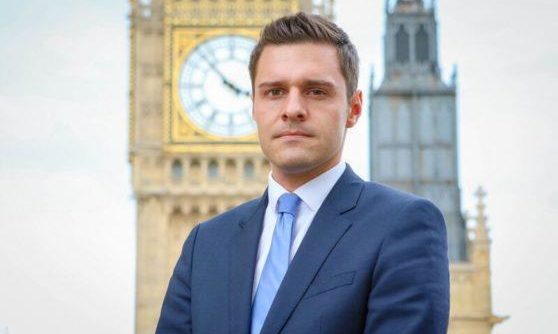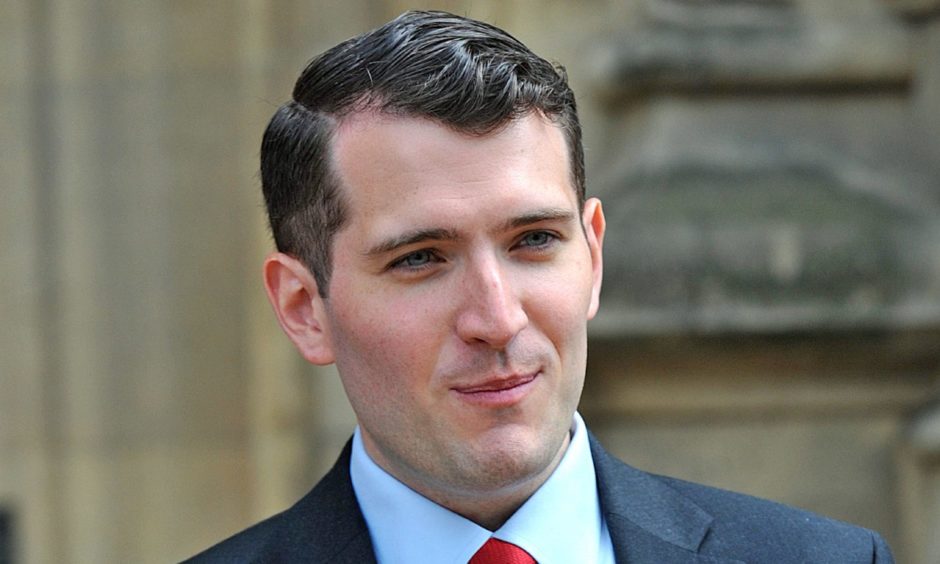Ross Thomson, a former Aberdeen MP cleared of sexual misconduct against a Labour rival in a Westminster bar, is launching legal action against his accuser.
Mr Thomson, who represented Aberdeen South from June 2017 to November 2019, has also called for Paul Sweeney to be suspended by Scottish Labour and for the party to hold an investigation into his conduct.
Mr Sweeney, who at the time of the alleged incident in October 2018 was MP for Glasgow North East, is third on the Glasgow regional list and appears likely to be returned as an MSP at May’s Scottish Parliament election.
However, any disciplinary procedure launched following Mr Thomson’s complaint could see Mr Sweeney’s spot put in jeopardy.
Complaint ended political career
The Labour politician claimed Mr Thomson groped him by the genitals and backside and attempted to put his hands down the front of his trousers in Strangers’ Bar in the House of Commons on October 30 2018.
The bombshell claims ended the political career of Mr Thomson, a rising star in the Conservative Party who was Boris Johnson’s campaign manager for Scotland during the Tory leadership race, after he announced he would not run for re-election in 2019.
An investigator later found there was no evidence of sexual assault and ruled the complaint had been “raised maliciously” before the 2019 General Election.
The parliamentary commissioner for standards upheld the ruling that there was no sexual assault but rejected the conclusion that the complaint was malicious.
No valid ground of appeal
Mr Sweeney appealed this on the grounds that the investigator had not interviewed “a key material witness” but a review panel found that the commissioner’s investigation “was particularly thorough” and there was “no valid ground of appeal”.
The investigator found “not just an absence of evidence” of sexual assault “but contrary evidence from witnesses who were present” among the 19 statements it took.
In a letter to Mr Sweeney seen by this newspaper, Mr Thomson’s solicitors, Ledingham Chalmers, claim their client suffered “substantial” damage to his career and reputation from the allegations, and that defamation action is being considered.
It states the firm has also written to the Labour Party to lodge an official complaint and that Mr Thomson’s “greatest desire is to be able to uncontrovertibly clear the stain on his character caused by these allegations”.
The letter, first reported in the Times newspaper, adds that “while it may be possible to put a monetary value on the damage” a clear written apology from Mr Sweeney would, in Mr Thomson’s eyes, be “the most satisfactory compensation”.
The firm states that were he to receive such an apology, Mr Thomson “is prepared to draw a line under matters”.
A further letter from Mr Thomson’s solicitors to Anas Sarwar, leader of Scottish Labour, and to the party’s UK and Scottish general secretaries, questions whether Mr Sweeney is fit for office in light of the findings of the investigations.
“The public rely on politicians to tell the truth regardless of their political affiliation. It is of some surprise that Mr Sweeney has retained his membership or is being considered as a potential candidate for election,” it says.
“If the party has not made investigation into this matter to date, please treat this letter as a formal complaint against Mr Sweeney and confirm that it will be investigated under its disciplinary rules.”
The letter adds that pending the conclusion of the investigation, and given the seriousness of the allegations, “it would also seem appropriate to suspend Mr Sweeney’s membership at this time”.
‘We will respond in due course’
A Scottish Labour spokesman said: “We confirm receipt of this letter and will respond in due course. All complaints are handled in line with party procedures.”
Mr Sweeney submitted his complaint five months after he claimed the assault took place and weeks after separate allegations were made against Mr Thomson, which resulted in police being called to the same bar.
The standards commissioner ruled that witness accounts did not support allegations of sexual assault and that while it was “entirely possible that discreet contact might not have been observed by others, Mr Sweeney’s account was of behaviour that was highly unlikely to have gone unnoticed by others in the immediate vicinity”.
The commissioner said that she was “concerned that the detail of Mr Sweeney’s account has changed, with new elements introduced over time, some of which have not been substantiated”.



